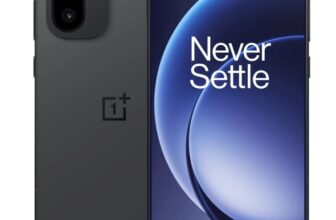
Apple just received some rare good news from the EU.
The European Commission announced on Tuesday that it closed its market investigation into four services – Apple’s iMessage and Microsoft’s Bing, Edge, and online advertising service (i.e., Microsoft Advertising) – to determine whether they’re “gatekeeper services.”
Under the EU’s new Digital Markets Act (DMA), core platform services must abide by a strict set of rules in order to operate within the European Union.
However, the European Commission found that these services did not meet the threshold to be declared as “gatekeeper services,” thus skirting regulation that would have forced Apple and Microsoft to open these services up to third-party integrations and cross-platform interoperability.
“Following a thorough assessment of all arguments, taking into account input by relevant stakeholders, and after hearing the Digital Markets Advisory Committee, the Commission found that iMessage, Bing, Edge and Microsoft Advertising do not qualify as gatekeeper services,” reads the announcement from the European Commission. “The Commission will continue to monitor the developments on the market with respect to these services, should any substantial changes arise.”
According to The Verge, Apple and Microsoft both “welcomed” the decision from the Commission.
The European Commission did stress in its statement, though, that Apple and Microosoft are still viewed as “gatekeepers” under the DMA, meaning the law will continue to scrutinize these companies for potential “gatekeeper services.”
Apple’s DMA headaches
The decision being “welcomed” by Apple is likely an understatement. The company has been compelled to make big changes to the way it operates its iPhone, iOS, Safari, and App Store ecosystems, thanks to the DMA.
For consumers, the DMA should be a big win. These rules were created to create more competition and bar “gatekeepers” – i.e. big companies like Apple and Microsoft – from pushing third parties out of growing markets. For example, under the DMA, Apple must allow alternative marketplaces to distribute iOS apps, which would give developers the ability to avoid Apple’s App Store content rules as well as its revenue share model.
However, Apple was roundly criticized by companies like Meta, Spotify, and Xbox once it announced its new DMA-inspired policies. Apple instituted new policies that potentially make it more costly for developers. Epic Games CEO Tim Sweeney called Apple’s moves “hot garbage,” adding that it appears to be “malicious compliance.”
The iMessage exemption
Perhaps the most surprising decision from the European Commission is regarding iMessage.
Even the average consumer is well aware of the interoperability issues when it comes to texting. They see it whenever using iMessage and get a blue bubble message from another iMessage user or a green bubble message from a user with a non-Apple device such as Android.
When an Android app called Beeper Mini came along that allowed Android users to send blue bubble iMessage messages to iPhone users, Apple shut it down.
Companies like Google have also long campaigned for Apple to switch to the messaging industry standard, Rich Communication Services (RCS). For its part, Apple appeared to relent somewhat when the Cupertino-based tech giant announced it would support RCS in iMessage.
However, it appears this isn’t what factored into the European Commission’s decision to exempt the iPhone from these rules. The main reason the iMessage isn’t being considered a core gatekeeper service is because iMessage just isn’t that popular in the EU. Outside of the U.S., WhatsApp is by far the messaging app of choice for users. (In case you are wondering, Meta’s WhatsApp has been deemed a core gatekeeper service by the EU.)






